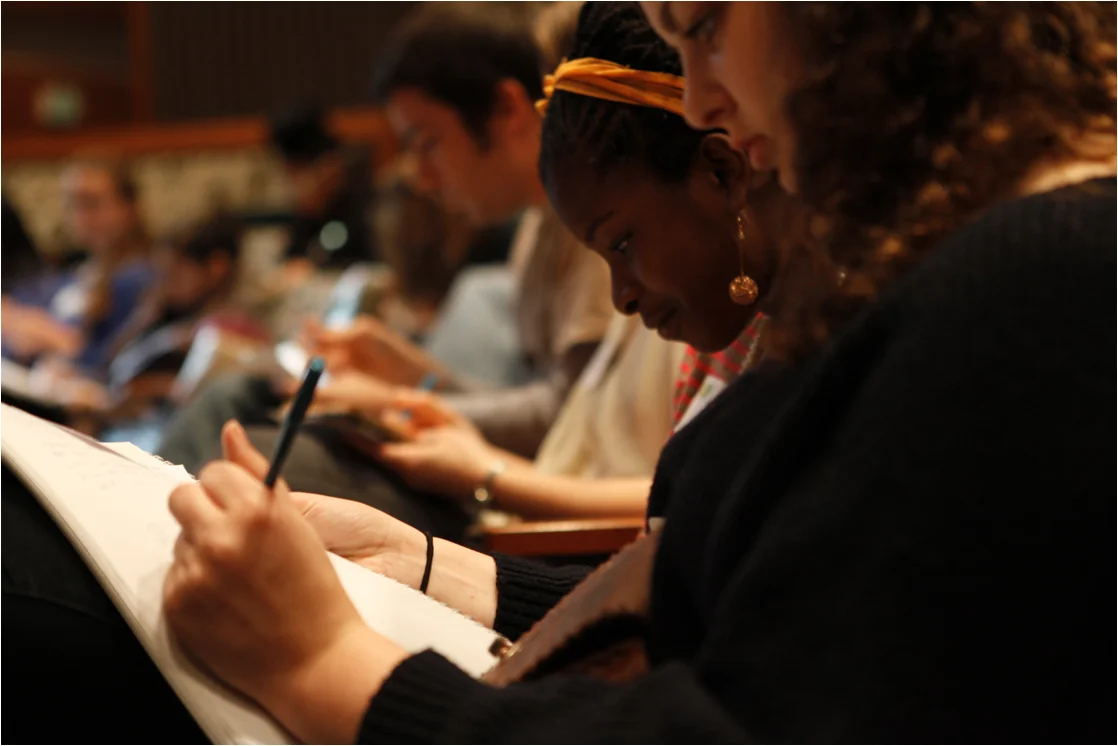Spoiler Alert: You Are a Poet!
/You might not realize it yet, but it’s true. Here are some tips for unleashing your inner Maya Angelou.
1) If you don’t know what to write, start with “what you know.” Pick a topic you have experience with and are passionate about (ballet, yoga, speaking multiple languages, cooking, soccer).
2) If you’re having writer’s block you can literally look out your window on your desk at something that interests you and start there.
3) Don’t be discouraged if you don’t like what you’re writing at the moment. You can always throw this poem away. Every poem is a fresh start. Every sentence is a fresh start. Every word is a fresh start.
4) If you think of something that seems scary or vulnerable and you don’t want to write about it, that might be something very powerful to write.
5) In our experience we have found more success in digging for unique words and experiences. Rather than abstract ideas i.e. “love is beautiful,” go for very specific and sensory words and experiences. Think of how moments in your life sounded and tasted. Did they crunch? Did they whistle?
6) It might help to avoid some somewhat tired words such as “pretty,” “beautiful,” “happy,” “sad,” “good,” “bad.” Instead think about exactly what you felt. Instead of pretty, was the person you are writing about naturally graceful? Glamorous? Striking? What made him or her pretty? A wild head of curls? An ease with strangers? Go for specifics.
7) It might help to draw upon some inspiration. You can find many poems free online. Some of our favorite poets are E.E. Cummings, Maya Angelou and Mary Oliver. Think about what your favorite writers are writing about (i.e. being somewhere and wishing you were there with someone else), and then try writing something similar but on your own terms.
8) Not everyone has to understand what you’re writing. But you have to understand and believe it. This is a chance to express something true and honest, something that is hard to communicate in linear terms. Poetry is a chance to be more surreal and nonsensical but still honest and authentic.
9) Lose control. Don't think too much, especially in the first graph. Trust your first thoughts. No need to edit as you write because often times the most authentic writing is what comes from your true voice in the first moment before your inner critic kicks in. Later you can go back and perfect what you are specifically trying to say.
10) Get lost in your work. Be led by the writing and don't over-think it. Let the writing and the emotion take you where the poem wants to go, and know that you don't need to control it.
By Miriam Sachs (Mentee) & Veronika Shulman (Mentor), inspired by Natalie Goldberg's Writing Down the Bones





